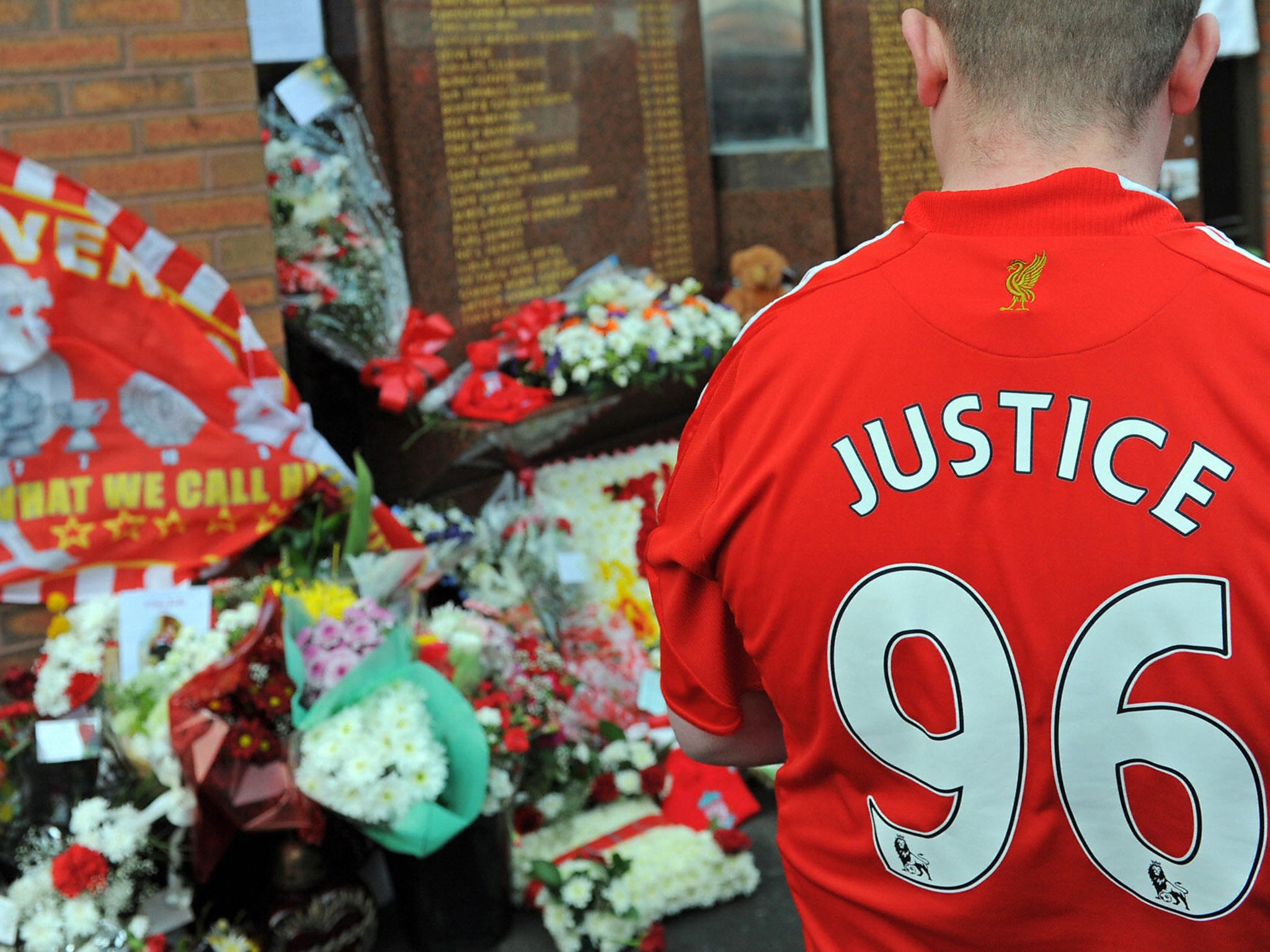Hillsborough disaster inquest: Ground commander breaks down in court as he recalls tragic day
A morning of grim evidence saw footage of former Superintendent Roger Greenwood frantically motioning to the Leppings Lane crowd to move back

Your support helps us to tell the story
From reproductive rights to climate change to Big Tech, The Independent is on the ground when the story is developing. Whether it's investigating the financials of Elon Musk's pro-Trump PAC or producing our latest documentary, 'The A Word', which shines a light on the American women fighting for reproductive rights, we know how important it is to parse out the facts from the messaging.
At such a critical moment in US history, we need reporters on the ground. Your donation allows us to keep sending journalists to speak to both sides of the story.
The Independent is trusted by Americans across the entire political spectrum. And unlike many other quality news outlets, we choose not to lock Americans out of our reporting and analysis with paywalls. We believe quality journalism should be available to everyone, paid for by those who can afford it.
Your support makes all the difference.The ground commander at the Hillsborough disaster broke down as he described his frantic but hopeless attempts to communicate to his superiors that an emergency was unfolding, before running on to the pitch to order the referee to stop the match.
The inquest into the deaths of 96 supporters was briefly adjourned as former Superintendent Roger Greenwood sought to recompose himself, during a morning of grim evidence, which included footage of the officer frantically motioning to the Leppings Lane crowd to move back and to his superiors in the ground’s control box, from where he received “no response”.
Ex-Supt Greenwood told how he eventually managed to requisition a loudspeaker and stepladder and secured a junior officer’s services as a “runner” to get messages around on an afternoon when the police radio system failed.
But it was the images of that April 1989 afternoon, rather than his testimony, which laid bare the desperate situation.
Mr Greenwood, who said he had no inkling of the imminent disaster before kick-off, was captured by TV cameras stepping on to a low perimeter wall to get a better view, using a pushing gesture while mouthing to fans to “move back” up the Leppings Lane terrace and employing a cross-armed wave to indicate to the control box that the game must be stopped.
He managed to pull one supporter to safety through one of the gates leading from the terrace on to the pitch but footage which showed him seeking to clear the gate exit also revealed several prone fans being dragged out.
Unbeknown to him, officers outside the Leppings Lane turnstiles were being overwhelmed by a mounting crush of fans, which led to the decision to open an exit gate and let a flood of people on to the terrace. Asked if he had heard any communication about that on his earpiece between 2.45pm and 3pm, he replied: “None whatsoever.”
It was after all attempts to communicate with the control box had failed that Supt Greenwood ran across the Hillsborough pitch to the referee, Ray Lewis, and told him to stop the match. It was as he described doing so that he struggled to maintain his composure. “I went to the referee on the pitch and told him…,” he said before faltering. “I told the referee, ‘We have an emergency running. Please take the players off the pitch,” he later resumed. “He complied.” In the background of footage of Mr Greenwood running to the referee, a fan is seen lying on the back of the goal net.
“It is impossible to portray in writing or – I think – really from the screen [where] you don’t have the sound, exactly what the situation was like,” Mr Greenwood said. “It was utter chaos. It was an emergency – an emergency that I had never witnessed before. It will remain with me for the rest of my life.”
Even at that stage he felt the situation was “recoverable” and he had no idea of the scale of the horror unfolding. “It was clearly an emergency. That is why I stopped the game,” he said. “But if you had said to me at that stage – just to put it into context – that that number of people were going to die, I would have said that was out of the question.”
The enormity hit him in stages, not least when he arrived at the makeshift casualty station and morgue which he had instructed be created at a gymnasium. “Well... beyond belief. Beyond belief,” he said of the scene which greeted him there.
An extract from a statement Mr Greenwood made in 1990 was read to the jury. “I had to concentrate on the disaster itself and deal with it with the resources immediately to hand,” it read. “I expected the control box, who were aware of the seriousness of the situation, to take control. I felt as if I was dealing with the disaster alone.” The inquest continues on Monday.
Join our commenting forum
Join thought-provoking conversations, follow other Independent readers and see their replies
Comments